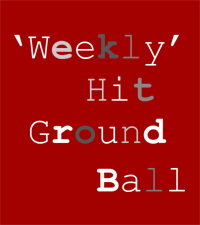 Whether you’ve got it or you haven’t, most of us often have money on the mind.
Whether you’ve got it or you haven’t, most of us often have money on the mind.
The madness of last Thursday’s football transfer deadline put sport-team spending back in the headlines, especially the antics at Queens Park Rangers.
QPR may be languishing at the bottom of the Premier League, but they would be flying up the table if they got points simply for spending money (their actions suggest that they believe that’s the case). Their most eye-catching deal was to sign central defender Chris Samba for a £12.5m transfer fee plus a 4.5 year contract worth £100k per week. That amounts to an investment of the best part of £36m, or $57m.
What do you get for that sort of money in MLB, bearing in mind that there are no transfer fees (Japanese/Korean posting fees excepted)? Well, that’s practically the same money as the Cleveland Indians spent on a four-year contract with Nick Swisher this offseason.
If we looked at it on an average annual value basis (lumping together the transfer fee and wages) then Samba amounts to approximately $12.66m per year. That’s equivalent to the deal the Red Sox agreed this offseason with Shane Victorino ($13m per year for 3 years), or – looking back to the previous offseason – the $12.5m AAV obtained by Jonathan Papelbon as a free agent from the Phillies.
After looking up these details on the essential Cot’s Baseball Contracts site, my mind wandered to general team spending. Where we used to look towards the New York Yankees for dishing out cash like confetti, it’s now the Los Angeles Dodgers who stand out the most.
They have four players whose current contracts are worth more than $140m: Carl Crawford ($142m), Zack Greinke ($147m), Adrian Gonzalez ($154m) and Matt Kemp ($160m). The latter two have already played through one-year of their contracts, whilst Crawford has served out – ‘played’ wouldn’t be the accurate word to use in this case – two years of his. So the future commitment in the players isn’t quite as big as the headline figures suggest, but they represent a willingness to award and take on such significant contracts.
Clayton Kershaw will almost certainly become the fifth player in this category if, as expected, he agrees a lucrative contract extension with the Dodgers in the near future too.
Another way of looking at the extent of the Dodgers’ spending is with consideration of their top ten highest earners in 2013, again, courtesy of Cot’s:
| Player | 2013 salary ($) | 2013 salary (£) | £ per week |
| Adrian Gonzalez* | $21,857,143 |
£13,783,176 |
£265,061 |
| Carl Crawford* | $20,857,143 |
£13,152,574 |
£252,934 |
| Matt Kemp | $20,250,000 |
£12,769,708 |
£245,571 |
| Zack Greinke | $19,000,000 |
£11,981,679 |
£230,417 |
| Josh Beckett* | $17,000,000 |
£10,720,264 |
£206,159 |
| Hanley Ramirez | $15,500,000 |
£9,774,358 |
£187,968 |
| Ted Lilly | $13,166,667 |
£8,303,135 |
£159,676 |
| Andre Ethier | $13,500,000 |
£8,513,341 |
£163,718 |
| Chad Billingsley | $11,000,000 |
£6,936,796 |
£133,400 |
| Clayton Kershaw | $11,000,000 |
£6,936,796 |
£133,400 |
*The Red Sox very graciously are chipping in nearly $7m to go towards the salaries of Gonzalez, Crawford and Beckett.
This all brings us on to the Dodgers’ recently-announced new television contract with Time Warner Cable that is going to bring in revenue on a colossal scale. The exact figures aren’t yet known, but the contract is for 25 years and estimated to be worth between $7bn-$8bn. One A’s blogger noted that if the contract is at the top end of that scale, the Dodgers could be raking in revenue in the region of $544m per year, combining their own TV network with the national TV rights, ticket sales and the rest.
And that’s what makes the Dodgers’ spending so remarkable: these salaries are completely affordable- I hesitate to use the word ‘sensible’, yet that also may be true – to the Dodgers from a business standpoint.
The same cannot be said for QPR and their loyal fans would be forgiven for seeing their situation as a billionaire’s toy as dangerously close to what led to the mess at Portsmouth FC.
One final thought that may provide some cheer, though. It’s worth bearing in mind that those are the top ten earners on the Dodgers’ current roster, but there’s another salary on the payroll that could be included. The Dodgers will pay Manny Ramirez $8.3m this year to sit about in retirement, two-and-a-half seasons after he left the club.
Coincidentally enough, that works out at just over £100k per week.
If QPR want point to something that makes paying Samba £100k per week look a little less mad, this might be their best option.
WBC on the way
We’re now just under a month away from the start of the 2013 World Baseball Classic. I’ve begun work on some resources in preparation for the tournament and in doing so learned that the weekend in the middle of the event will be an absolute baseball feast.
During this period there will be First Round games from Puerto Rico and Arizona taking place in the evening and early hours U.K. time, combined with Second Round games from Tokyo in the morning. This means that 15 WBC games will begin between 7.30 p.m. on Friday 8 March and 10 a.m. on Monday 11. You’d best cancel any other plans you had in the diary for that weekend!
So long Baseball Today
In amid the optimism of the new season approaching, there was extremely disappointing news this past week when ESPN announced that it had decided to call time on the Baseball Today podcast. The show was hosted by Eric Karabell ably assisted by regulars Keith Law, Dave Schoenfield and Mark Simon and was the only podcast I listened to on a regular basis. It covered baseball predominantly from a statistical, sabermetric viewpoint and did so in a way that was fun, thought-provoking and professional.
ESPN in their wisdom are replacing it with a Baseball Tonight podcast hosted by Buster Olney and whilst I suspect that it will be decent enough on its own, it will just be the same ESPN voices talking about the same news in the same way that you get on all the other ESPN programmes. The great appeal of Baseball Today was that it provided something different and ESPN’s baseball coverage will be much the poorer without it.

